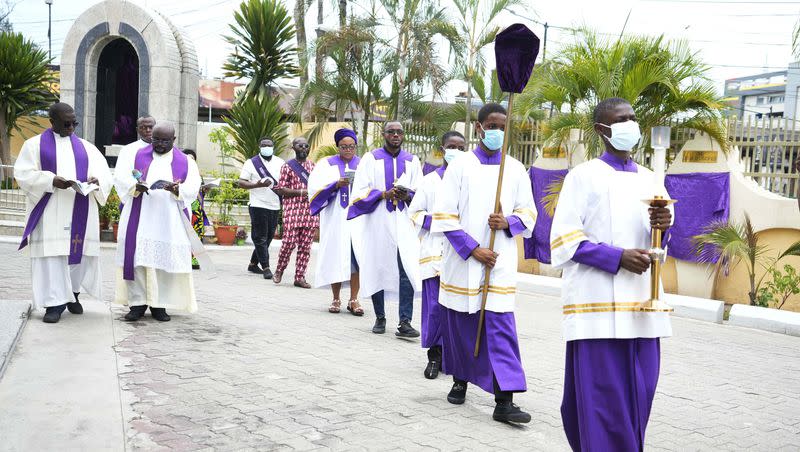Opinion: When a prayer meeting on Zoom becomes a crime, religious freedom is in jeopardy

Last Friday — Good Friday — Myanmar’s military court sentenced the former leader of the Kachin Baptist Convention to six years in prison. Among his alleged crimes was to hold a prayer meeting on Zoom, where he asked young people to build “the nation in Christ.”
The former Baptist leader, Hkalam Samson, also had met with the leader of the nation’s government in exile. For all this, he was charged with terrorism, unlawful association and inciting opposition, according to Christianity Today.
In Nigeria, meanwhile, an independent research group is working hard to document the persecution and violence committed against Christians, because the government has done little to stop the problem.
So far, the group has cataloged about 200 attacks on Christian communities in the northern part of the country during an eight-month period in 2022. These include murders numbering in the hundreds, kidnappings and thousands of people being displaced — all with little response from the military or the police, according to pillarcatholic.com.
The difference is that Myanmar (or Burma, as it was known officially until 1989) is on the U.S. State Department’s official list of offenders against religious liberty, mainly for its mistreatment of Rohingya Muslims, but Nigeria is not.
Related
In a Deseret News story earlier this week, Kelsey Dallas quoted former U.S. ambassador-at-large for international religious freedom, Sam Brownback, as saying the list of offending countries faces pressure from within the Department of State from diplomats working with certain countries.
“They’ll say, ‘Look, we’re working with them. You’re going to make it harder to work with them,’” Brownback said.
And yet, the situation in places such as Nigeria doesn’t seem to be improving. More likely, those who turn their backs on atrocities are emboldened by being left off the official list of offenders published by the United States. Making the list means your nation faces possible economic sanction, travel bans or other penalties.
But the State Department’s conspicuous inconsistency also could lead to unintended consequences, perhaps at the cost of lives. It’s also a violation of bedrock U.S. values; the kind that led lawmakers to create the office of ambassador-at-large for international religious freedom in the first place in 1999.
In the April edition of Deseret magazine, Katrina Lantos Swett, former chairwoman of the U.S. Commission on International Religious Freedom, argues that “advancing human rights is all about making abusive governments uncomfortable.”
Swett also argues that religious persecution is a canary in the coal mine for other problems and abuses.
“We know from research that a nation crushing the conscience rights of its people invariably denies them a whole host of other basic human rights,” she wrote. “Conversely, societies that do a robust job of protecting conscience rights are more peaceful, more prosperous, more democratic, and women in such societies enjoy a higher socioeconomic status.”
Related
She is exactly right. No right is as fundamental to basic liberty as the right to believe or disbelieve in religion as one chooses, and to choose which church, synagogue or mosque to attend. That includes the right to change religion as one chooses, as well.
The current U.S. ambassador-at-large for international religious freedom is Rashad Hussain, who comes to the job with an impressive background. That includes being appointed United States Special Envoy to the Organisation of Islamic Cooperation by President Barack Obama at the age of 31.
But neither Hussain, nor anyone else in the ambassador’s role, can effectively promote religious liberty abroad unless the State Department, and the administration, make such liberty an uncompromising cornerstone of U.S. diplomacy.
As Swett said, “both Republican and Democratic administrations have been reluctant to fully deploy either their soft or hard power levers.” That needs to end, especially in light of statistics that show “roughly 75% of the world’s population live in countries that significantly restrict and repress freedom of religion.”
Given the enormous role religious liberty — the first freedom in the Bill of Rights — has played in the success, peace and prosperity of the United States, Washington should do no less than insist this peace-inducing tool be used by all who desire a favored status.
The many who are suffering and dying in places where officials escape accountability deserve no less.

